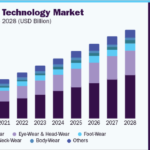Fintech Startups Look Beyond Lending
Definition of ‘Fintech’
The term “financial technology” or “fintech” is a term that refers to the incorporation of new technical developments into financial services and products. In this context, we provide a brief description of Fintech and its market.
The business is enormous and will grow even more in the years to come. One motivating element is that many commercial banks are tech advocates and users, aggressively engaging in, merging, or collaborating with fintech companies since it is simpler to meet the demands of clients who are tech-savvy while also advancing the business and being competitive.

A Fintech Market is what?
In order to make the standard finance industries safer, quicker, and more effective, fintech companies incorporate technology (such as AI, bitcoin, and information science) into them. Businesses are developing in nearly every aspect of finance, from transactions and lending to credit assessment and equities, making fintech one of the speediest digital areas.
How is the fintech market implemented?
Fintech is not a brand-new sector; rather, it has developed extremely swiftly. If it was the advent of credit and debit cards in the 1950s or ATMs, automated trading platforms, financial planning applications, and elevated trading in the following decades, innovation has, to some extent, always been a part of the economic sector.
Financial technology’s core components differ accordingly and from application to application. Yet, some of the most recent innovations use mathematical modeling, cryptocurrency, and machine learning techniques to analyze credit activities and mitigate financial firms, among other things. In reality, there is now a whole subset of the administrative techniques called “regtech” that was created to help businesses like, you guessed it, fintech, negotiate the difficult world of regulations and legal issues.
As the fintech market has expanded, so have worries about cybersecurity. Fintech technology has become more vulnerable and a focus for cybercriminals because of the enormous rise of fintech businesses and exchanges on a worldwide scale. Fortunately, technology is always improving to reduce current risk exposures and neutralize future attacks.
Here’s a brief info of how the Fintech Market is improving and upsetting some aspects of finance.
Banking
The fintech sector includes a sizable portion of digital money. Individuals are rapidly demanding quick digital access to funds in the field of personal banking, particularly on mobile devices. Since the emergence of “Neobanks,” or digital-first firms, the majority of large banks now provide some sort of mobile banking functionality.
Bitcoin and Blockchain
The development of cryptocurrencies and blockchain is occurring concurrently with fintech. Blockchain is the standard that allows for bitcoin markets and mining to operate, and both cryptocurrency and fintech are responsible for improvements in bitcoin technology. Although blockchain and cryptocurrencies are distinct innovations that fall outside the purview of fintech, in principle both are required to develop practical examples that advance the field.
Finance & Savings
In recent decades, the range of investment and storing apps has exploded due to fintech. Whereas these applications take different approaches, they all expose users to the market by combining savings with automatic small-dollar investment techniques, such as immediate shaped contributions to transactions.
Payments
Fintech is excellent at transferring funds around. The expression “I’ll pay you later” has been replaced with “I’ll Venmo you.” After all fact, Venmo is a popular app for mobile payments. The way Venmo conduct business has altered thanks to payment providers. Digital money transfers are now more straightforward than ever. Major payment processors in addition to Venmo comprise Zelle, Paypal, Stripe, and Square.
Lending
By automating risk analysis, accelerating approval procedures, and greater accessibility, fintech is also revolutionizing the credit industry. The ability to utilize credit on a mobile device is now available to billions of people worldwide, and increasing access to credit for underserved groups is made possible by additional data sources and risk modeling techniques. Furthermore, people can get credit scores several times a year without having it affect their score, which increases transparency for everybody in the lending industry overall.
Insurance
Despite fast emerging as a separate sector, insurance is currently included in the fintech sector. Since the insurance industry has been somewhat hesitant to adopt innovation, many fintech firms are collaborating with established insurance providers to streamline procedures and increase access. The industry is facing plenty of development, from sensors for medical insurance to digital vehicle insurance.
Author Bio:
Sabita Biswas is a content writer at ReportsAndData with a zeal for designing and developing all sorts of first-rate content. She is passionate about science and healthcare but also has a fervor to stay updated with the latest happenings in the world. When she is not writing, she can be found immersed in a book pretending the outside world doesn’t exist.
Author Profile

-
Hi I am Karan a passionate blogger. It's almost 4.5 years when I started blog writing in 2019. I am the owner of the Dailylist.in. My dedication to delivering reliable information and useful tips has earned him a loyal following among tech enthusiasts seeking reliable insights and recommendations.
If You have any query then email Us. dailylist88@gmail.com



